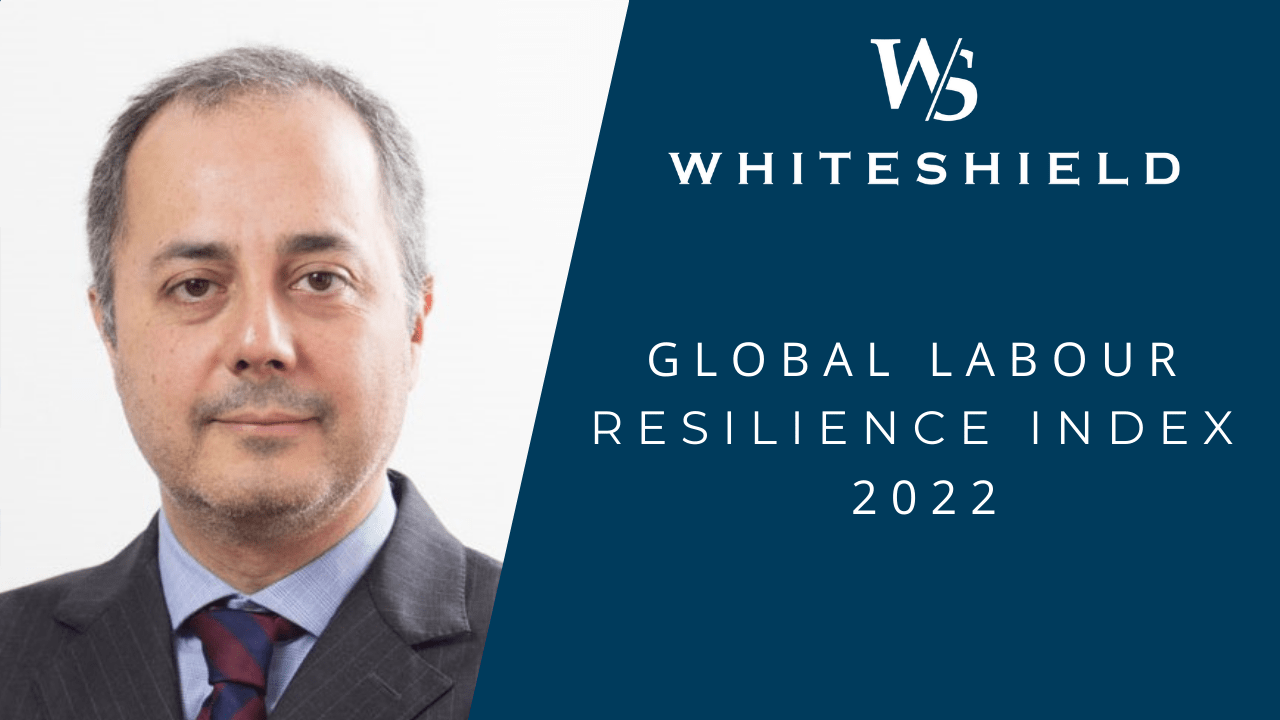
Global Labour Resilience Index 2022: Stagnating resilience
Whiteshield launched, in February 2022, its annual report on labour market resilience entitled Global Labour Resilience Index 2022: Stagnating resilience.
Over the last 12 months, our world has continued to deal with the after-effects of an unprecedented crisis with considerable long-term ramifications for which it was not prepared.
The 2022 edition of the Global Labour Resilience Index (GLRI) continues to build upon its resilience capabilities framework and places an emphasis on the key capabilities required for countries to better prepare for both shorter-term shocks such as COVID-19 and longer-term stresses such as technological disruptions and green transitions.
Labour market resilience is stagnating across the world
There has been very little movement in the GLRI rankings over the last five years, predominately due to the fact that labour market resilience has become stagnant. Almost half of the countries have either experienced a decline in labour market resilience or have increased their score by less than 1 point.
Countries must address their structural or cyclical weaknesses if they are to boost labour market resilience.
Too many countries are being left behind
Over one third of countries within the Index score less than 50 out of 100 on labour market resilience, and 70% of countries in Sub-Saharan African rank below 100. There is a major gap between resilient leaders and laggards, and without change in policy this will continue.
Failing to close the resilience gap is a cause for concern, as many nations did not have the tools or capabilities in place to cope with COVID-19. Shocks are inevitable and without change, many will again find themselves prone to labour market disruption.
The recovery is not uniform and having the right capabilities is essential.
The USA has the highest adaptive capabilities. This means that it will be able to recover from a shock with relative ease and speed. Over the last two years, this has been evident, where unemployment rose drastically during the early stages of the COVID-19 crisis, but has since been able to recover and almost return to pre-crisis levels. Adaptive capacity is enhanced by a supportive entrepreneurial environment, including a high level of performance when it comes to the ease of getting credit, and the time taken to start a business.
New business registrations in the USA dropped drastically during the initial months of the crisis. However, they have since rebounded and continue to grow at pace. Business registrations in the USA were 53% higher in 2021 than in 2019. The country has been able to use its capabilities to rebound quickly – however, only time will tell if this is sustainable.
Related Insights
Contact us
Subscribe to our newsletter
Subscribe now to receive our latest news



